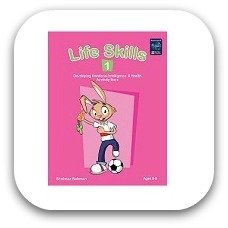Are you an Emotionally Intelligent Parent?
By Shahnaz Bahman
Do you sometimes find yourself on an emotional roller coaster or caught up in negativity?

Negative emotions about school
No-one said that looking after children would be easy. We can find ourselves going through all sorts of emotions such as happiness, confusion, sadness, worry and excitement. Our emotions have an impact on our children. The challenge is to deal with our emotions intelligently. How can
we be in control of our emotions rather than being a victim? How can we choose to act and not to react?
Developing self awareness
To develop our emotional intelligence we need develop self-awareness. To be able to manage our emotions we first need to understand our feelings and to distinguish between them. There is a great difference between feeling a “little down” and “depressed.”
Measure the intensity of feeling
After identifying exactly what we feel we can then measure the intensity of our feelings. One way of doing this is to imagine a scale or “feeling thermometer” marked from one to ten. If the feeling is light we can put it on a one or two. If it is an intense feeling we can it place on the top
of the scale.

Scan your body
Another
way of identifying feelings is to scan our bodies for any physical
changes. For example, some people blush when they feel shy or
embarrassed. Others might sweat if they panic or feel anxious. Their
heart
beat might go up or they may feel stress or pain in specific
parts of their body. Our bodies convey important information to us. It
is wise to listen and appreciate the messages it conveys.
Managing emotions
Once
we understand our feelings we can then move on to learning to manage
them. Our thoughts get influenced by our emotions. If we experience a
strong negative emotion, our emotional brain controls our
logical
brain. That is why we tend to react instead of choosing to act in
intense emotional situations. To manage our emotions we need to first
detach ourselves from the situation. We can do this by simply pausing,
looking the other way, or walking away from the situation. This very
short
pause can be of great benefit and perhaps can save lives in serious
situations. The next stage is to get ourselves together. Take a deep
breath and/or drink some water. This will send oxygen to our brain and
help us to calm down. Once we are detached and our brain has rebalanced,
we
can sensibly think of what actions to take.

Get to know your patterns
Throughout our life experiences we develop unique thinking and feeling patterns. To be emotionally intelligent we need to understand our own patterns. One way of achieving this is to start observing ourselves in different situations, to develop our understanding of how we think, feel and act in certain situations. For example, how do usually act when your child pushes your anger button? Do you deal with the situation calmly or do you react? How do you feel when your child is not feeling well?
Do you panic or do you calmly take him to the doctor if required? What do you tell your child when he complains about a friend? Observing the way we feel, think and act can lead us to better selfunderstanding.
Journal writing
Another way, of developing our self understanding is through journal writing. It helps us to reflect on daily practices, get in touch with ourselves, understand patterns and make decisions on how to improve things. Journal writing, if practiced consistently, can pay off greatly. As Antony
Robins, a master in Nero Linguistic Programming, (NLP) says, “ If my Life is worth living, it’s worth recording.” Once we develop self-understanding we can then enjoy better self management.
Program your brain
We all have various ways of managing ourselves in different situations. It might be a good idea to make lists of these and to have this list physically and/or mentally ready. For example, how do you manage yourself when you get angry? In your journal you can write the steps; I will decide
not to react; I will pause for few seconds; I will walk away from the situation; I will have a glass of water if possible; I will calm down and think of my options; I’ll choose the best option; I’ll act calmly.
Once you write this in your journal, read it a few times and make the decision to follow these steps. Your brain will store advice, and in critical moments of anger, it will open the file and give it to you. Your brain can help you to do this because you have saved a personal file on how to manage your anger and by reading it few times you are programming your brain on how to act when you get angry. It takes time and practice to get all your steps in place and “practice makes perfect”. To further help yourself in similar situations, you can list the situations or emotions you are most likely to go through and create more files in your brain. Your brain will support you when you need it most.
|
|



